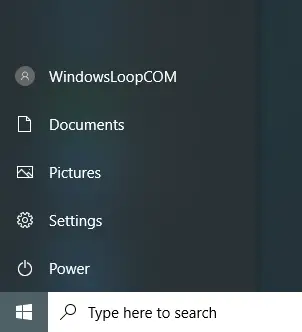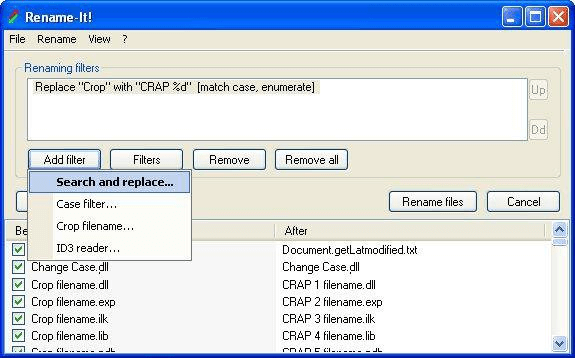

Please feel free to upvote or mark the answer as correct if this solves your problem. So if you have the variable name example you would reference the variable using !example! inside the loop instead of %example%.įor variables inside the loop to work we also need to add the command setlocal enabledelayedexpansion before the loop. We change % to ! for variable names inside a loop. txt use the command ren "C:\test\*.new" *.īecause we are in a for loop we need to change how we address varables (which based on what you have written so far you already know).

That will leave you with the renamed text files. Right-click the file and then select 'Rename' on the context menu. Click to select file and then click the name of the selected file. Click to select the file and then click the 'Rename' button on the Home menu. If you want to delete the original files we just need to run the command for %%F in ("C:\test\*.txt") do ( del %%F ). Rename Multiple Files in Windows Explorer. You can use the command set "ParsedDate=!MDate:~6,4!!MDate:~0,2!!MDate:~3,2!" to convert the output of set "MDate=%%~tF" from MM/DD/YYYY hh:mm to YYYYMMDD.Īfter that we can copy the files to new files using the value of %ParsedDate% in the filename. To parse the date that is provided by set "MDate=%%~tF" you will need to specify which parts of the value stored by %MDate% you want to use in the output. To get the modify date of a file we can use set "MDate=%%~tF". You were very close, but you were missing a few things.
MASS RENAME IN WINDOWS 10 CODE
Here is the code you need to use to iterate the text files, obtain the modified date of each file, copy each file using the modified date as part of the file name, and delete the original files. txt that I can use to pull in the date modified information into the filename more automatically? Does anyone out there have a suggestion of a Windows CMD prompt or a simple. Ren "!name!" "!name:ArcGIS_TT_Projections_Transformations=ArcGIS_TT_Projections_Transformations_20090109!"īut I am trying to avoid having to repeat that process for 61 files. I have only had success using rename scripts like the following: offįor %%F in ("ArcGIS_TT_Projections_Transformations*.txt") do ( | ArcGIS_TT_Projections_Transformations.doc I then pulled the report into Excel as a delimited text file and manipulated the content so I now have the "last modified" date in one column and the filename in another: Open the Tips and Tricks folder and look for a text file with the filename you created.Hold down the Shift key and right-click the Tips and Tricks folder.I was able to generate a report from the desired file folder of all the files inside using the following steps: Just keep in mind if you have millions+ files/items as it may take awhile to iterate all of them before any renames are carried out.I am attempting to rename a large batch of files to incorporate the dates in the "Date Modified" column from File Explorer into each filename in YYYYMMDD format. set /p yourfolder'Input the path to the folder where you want to change filenames to ABC: ' Echo. Code: SetLocal EnableDelayedExpansion echo off Echo. Putting $() around a Get-ChildItem ensures that all of the currently existing files get returned first and are then piped into Rename-Item, rather than piped in dynamically without the subexpression operator. here is the code and a small video I made. Instead of 'dir |' I can use: dir | where-object -filterscript

'dir -recurse' outputs all the files, folders and sub-folders. Notes: 'dir' is an alias of 'Get-ChildItem'. Using '|' will pipeline the output of 'dir' for the command that follows. You can use 'dir' to see all the files in the folder. Notice: address must incorporate quotes "" if there are spaces involved. Type: "PowerShell" and open the 'Windows PowerShell' command window.


 0 kommentar(er)
0 kommentar(er)
